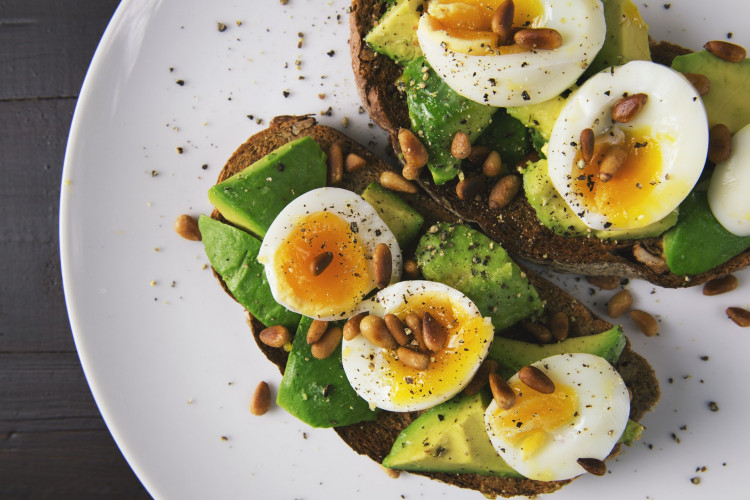What makes keto different from low-carb diets in general? And who's going to win in a low-carb vs. keto face-off?
Macronutrients are the biggest distinction between keto and low-carb diets. When people adopt a keto diet, they monitor how many grams of carbs, protein, and fat they consume to keep in ketosis.
Some people slash carbohydrates from their diet without being ketogenic (keto). This is the greatest difference when you look at low-carb vs. keto.
But how is this possible?
Low Carb vs Keto: Ketosis
In order to adopt a ketogenic diet, you need to be in a ketosis state. This basically means that the body burns fatty acids (ketones) for energy instead of carbohydrate storage (glycogen in the liver and glucose in the blood).
The levels of the ketones released can differ depending on the daily macros. And the amount of carbohydrates eaten is one of the major variations when it comes to low-carbohydrate versus keto.
When you have regular ketone levels in the bloodstream, your brain and the rest of the body are powered by stored body fat. But, the only way to tell for sure whether you're in a ketosis condition is by checking it by regular tests.
Low-Carb Without Being In Ketosis
There is no need to produce ketones to lose weight with low carbs. People who lower their daily intake to less than 150 grams a day have been successful in dropping weight.
However, those who still limit calories do better with a higher carbohydrate diet plan. That's because much of the carbohydrate consumption can be keto-friendly vegetables and fruits that are naturally low in calories.
Active individuals often tend to do well on a low-carb diet as fat burns by exercise.
Keto vs Low Carb for Weight Loss
It is possible to lose weight on both a low-carb diet and a ketogenic diet. But keep in mind that a ketogenic diet is a low-carb diet.
However, a carb-restricted diet may not actually place you in ketosis. Again, that's why it's important to monitor every day if your aim is to use your own body fat for energy.
If you're just eating low-carb, but your target isn't ketosis, you can still lose weight. This is particularly true if most of the carbohydrates you eat are vegetables. And you exercise on a regular basis, and your hormones are balanced.
Why Ketosis May Not Help You Lose Weight
When you're in a ketosis state, it's actually the safest weight losing mechanism. It is, however, technically possible to be in ketosis but not to lose weight.
For example, if your workout regimen requires weightlifting, you will be able to weigh the same even after a few months of ketosis. Yet one thing is for sure about ketosis: you're going to shed body fat.
As long as you stay in a ketosis state, the body can burn fatty acids for energy. So, while your scale may read the same number after a few days or weeks of ketosis, your jeans are likely to fit much looser.






